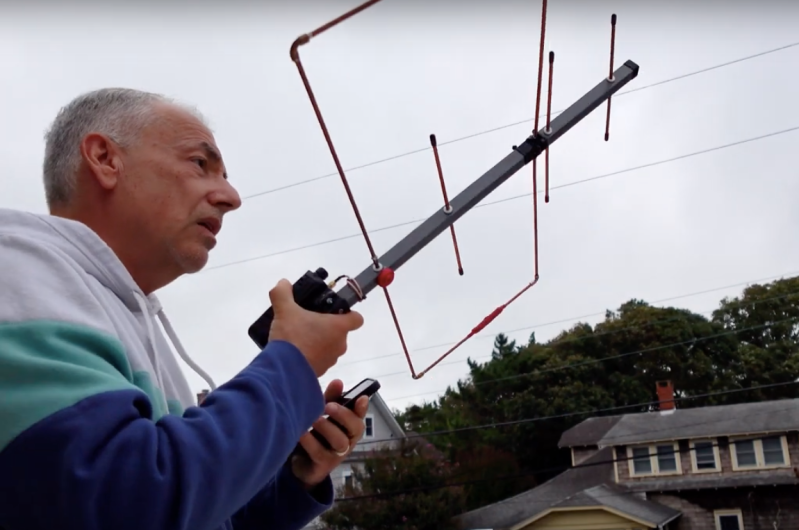When the first artificial satellite, Sputnik, was put into orbit around Earth, anyone in the path of the satellite could receive the beeps transmitted by the satellite provided they had some simple radio equipment. Of course, there was no two-way communication with this satellite, and it only lasted a few weeks before its batteries died. Here in the future, though, there are many more satellites in orbit and a few are specifically meant for ham radio operators. And, like the ’50s, it doesn’t take too much specialized equipment to communicate with them, although now that communication can be two-way.
The first step in this guide by [W2PAK] is to know where these satellites are in the sky. The simplest way to do that is to use a smartphone app called GoSatWatch and, when configured for a specific location, shows the satellites currently overhead. After that it’s time to break out the radio gear, which can be surprisingly inexpensive. A dual-band handheld is required since satellite uplink and downlink can be on different bands, and the antenna can be made from simple parts as well as [W2PAK] demonstrates in a separate video. Combined, this can easily be done for less than $100. [W2PAK] also goes over the proper format and etiquette for a satellite contact as well, so a new operator can pick it up quickly.
Using satellites as repeaters opens up a lot of capabilities when compared to terrestrial communications. Especially for operators with entry-level licenses who are restricted to mostly VHF and UHF, it adds a challenge as well as significantly increased range compared to ground-based repeaters and line-of-sight communications. There are plenty of activities around satellites that don’t require a license at all, too, like this project which downloads weather imagery from weather satellites.
















Putin Sputnik into space
Except the V-2s didn’t reach orbit. They went into space, but they were not satellites. Sputnik was indeed the first.
Actually, Sputnik was first artificial satellite. Von Braun’s and USA V2 experiments were all suborbital and only few exceed the 100 km height.
True, if you look up the first rocket reaching space it is an ordinary V2 with the German flag removed and a tiny rocket at the top with an American flag at the top of the V2 to fly a few km, sorry meant miles, higher than the V2 so it breaks the record of the German first stage lifting it into space.
I wish I was joking.
I made a dual band Yagi for this with a scrap wood boom, some aluminum elements (from a discarded aluminum power line), BNC connector, some old TV coax and a coil. Maybe not the best performance but sure was cheap. I wish I could remember whose site had the plans.
Here are some recordings of early satellite reception from 1958:
https://archive.org/details/lp_voices-of-the-satellites_no-artist
How hard is it to hack any of the many satellites in orbit,? Starlink, what else????
Done, covered: https://hackaday.com/2023/02/24/hunting-for-space-pirates/
Pretty easy, especially as the tech in orbit often far ouitlives its expected lifespan and older hardware is often less secure because it was never expected that hackers/hobbyists would have the necessary tech and it’s pretty difficult to patch or upgrade security on sats in orbit.
You’d expect modern satellites to be less vulnerable.
Time will tell.
Beware of taking advice from any ham who uses a “Bayfunk”(China Junk) radio
for anything except receiving. YHBW
Money is often a factor.
They aren’t all made equal. There are BTech and Retevis radios with FCC approval and they are as cheap.